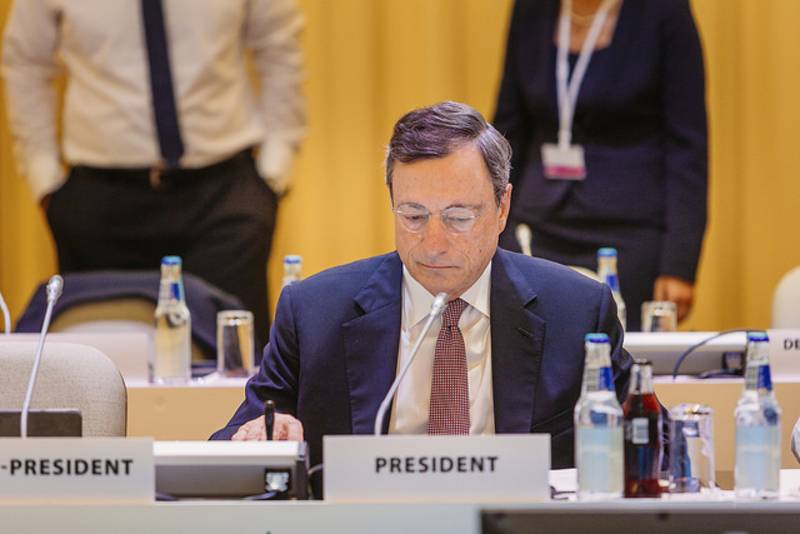Basel III wants more capital from banks for more security
Ralitsa Kovacheva, September 22, 2010
 A significant tightening of the existing capital requirements of banks has been approved on September 12 by the supervisory body of the Basel Committee for Banks Supervision* - the Group of Governors and Heads of Supervision. The capital reforms, together with the introduction of a global liquidity standard are in the foundation of the global financial reform, the official press release of the Bank for International Settlements (the so called bank of central banks) says. The approved changes, also known as Basel III, will be presented at the G20 summit in Seoul in November.
A significant tightening of the existing capital requirements of banks has been approved on September 12 by the supervisory body of the Basel Committee for Banks Supervision* - the Group of Governors and Heads of Supervision. The capital reforms, together with the introduction of a global liquidity standard are in the foundation of the global financial reform, the official press release of the Bank for International Settlements (the so called bank of central banks) says. The approved changes, also known as Basel III, will be presented at the G20 summit in Seoul in November.
According to the Basel decisions, the minimum requirement for common equity will be raised from the current 2% level to 4.5%. Additionally, banks will be obliged to sustain a capital conservation buffer of 2.5% in order to be able to resist future periods of stress. Thus, the overall capital requirement increases to 7%. The national implementation of the new requirements will start from January 1, 2013 and will continue to 2015 for the overall capital and to 2019 for the buffer. The deadline is the result of a compromise between US's and Britain's insistence for a swifter implementation of the new requirements and Germany's wish for a longer transitional period.
The president of the European Central Bank (ECB) Jean-Claude Trichet commented that the approved agreements' contribution to the longterm stability and growth will be significant and, also, this could give banks the possibility, during the transition period, to respond to the new standards, by in the same time support economic recovery. According to Nout Wellink, Chairman of the Basel Committee on Banking Supervision and President of the Netherlands Bank, "the combination of a much stronger definition of capital, higher minimum requirements and the introduction of new capital buffers will ensure that banks are better able to withstand periods of economic and financial stress, therefore [the changes] supporting economic growth".
The fears that the new capital requirements can hamper crediting, thus slowing down economic growth, were the reason for the long and difficult negotiations on Basel III. Another worry is that the new rules will not be written in an international agreement, so their application will depend only on governments' good will.
In the meantime the EU held massive stress tests of its banks which showed that European banks will sustain with the new conditions and can respond to the 7% capital adequacy requirement. Several German banks appeared to be in trouble, which is why Germany insisted on lower requirements, compared to the proposals of the US and Britain, and also for a longer transition period. The Basel Committee is continuing its work on additional requirements for the largest world banks of significance for the system.
In the meantime, work is still going on on the adoption of an entirely new financial sector regulation, but on an individual basis because of the lack of consensus on global level. The EU has already achieved consensus on the new supervisory framework of financial institutions and on September 15 it proposed changes to the short sellings, derivatives and default swaps.
*The Basel Committee on Banking Supervision provides a forum for regular cooperation on banking supervisory matters. It seeks to promote and strengthen supervisory and risk management practices globally. The Committee comprises representatives from Argentina, Australia, Belgium, Brazil, Canada, China, France, Germany, Hong Kong SAR, India, Indonesia, Italy, Japan, Korea, Luxembourg, Mexico, the Netherlands, Russia, Saudi Arabia, Singapore, South Africa, Spain, Sweden, Switzerland, Turkey, the United Kingdom and the United States.
 Mario Draghi | © ECB
Mario Draghi | © ECB Vladislav Goranov, Sven Sester | © Council of the EU
Vladislav Goranov, Sven Sester | © Council of the EU Tsakalotos, Djisselbloem, Gramegna | © Council of the EU
Tsakalotos, Djisselbloem, Gramegna | © Council of the EU